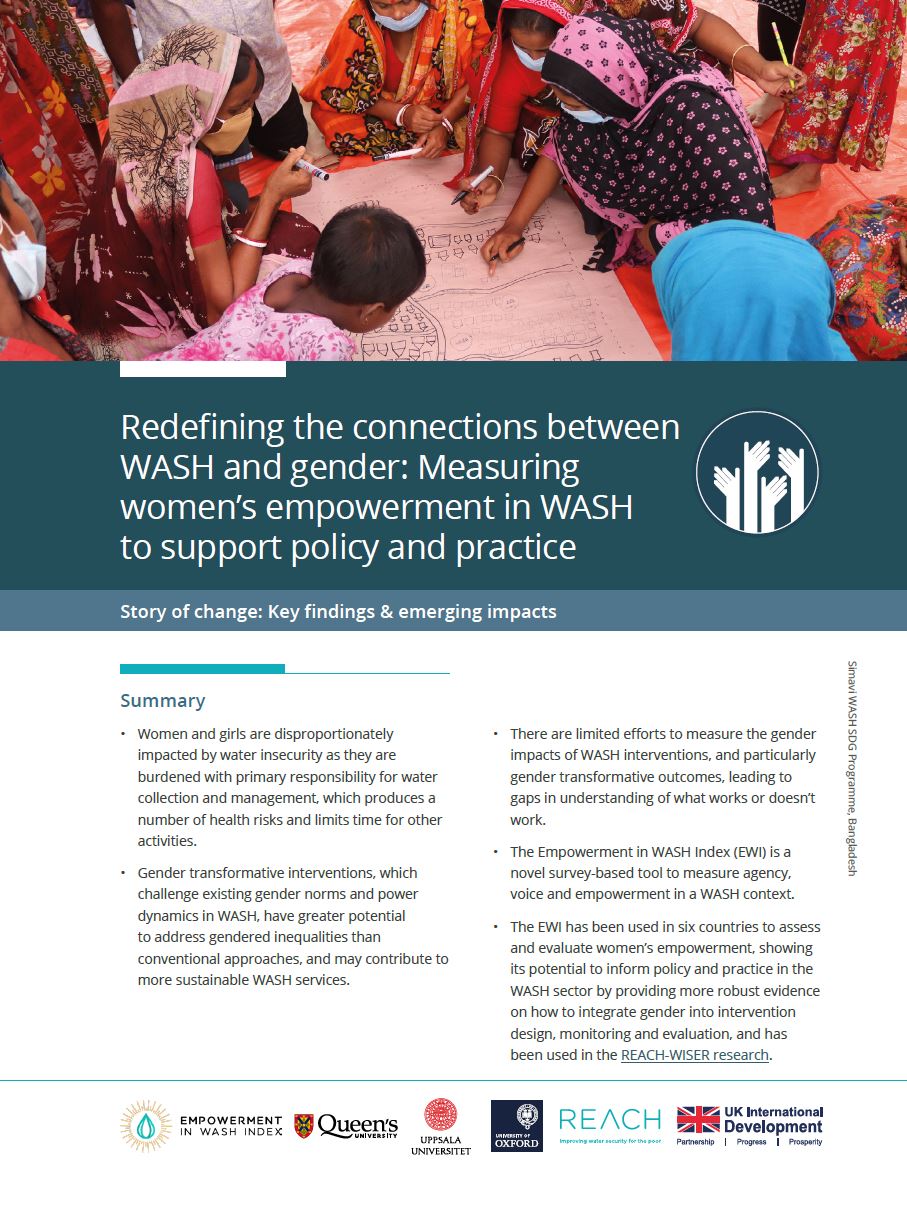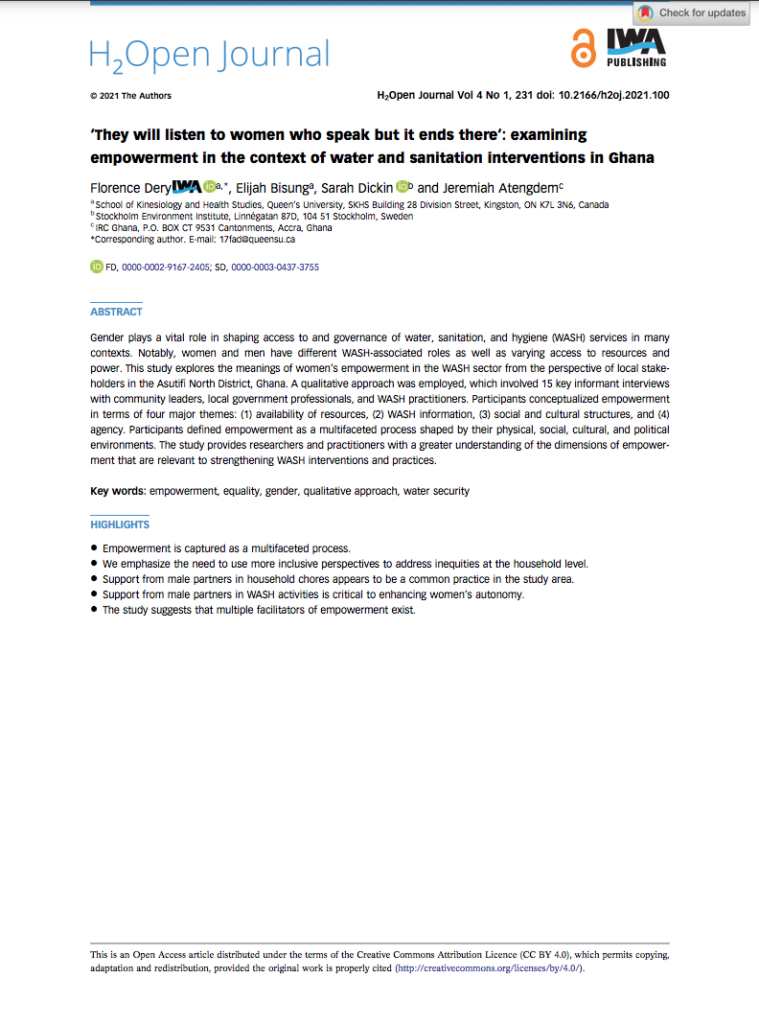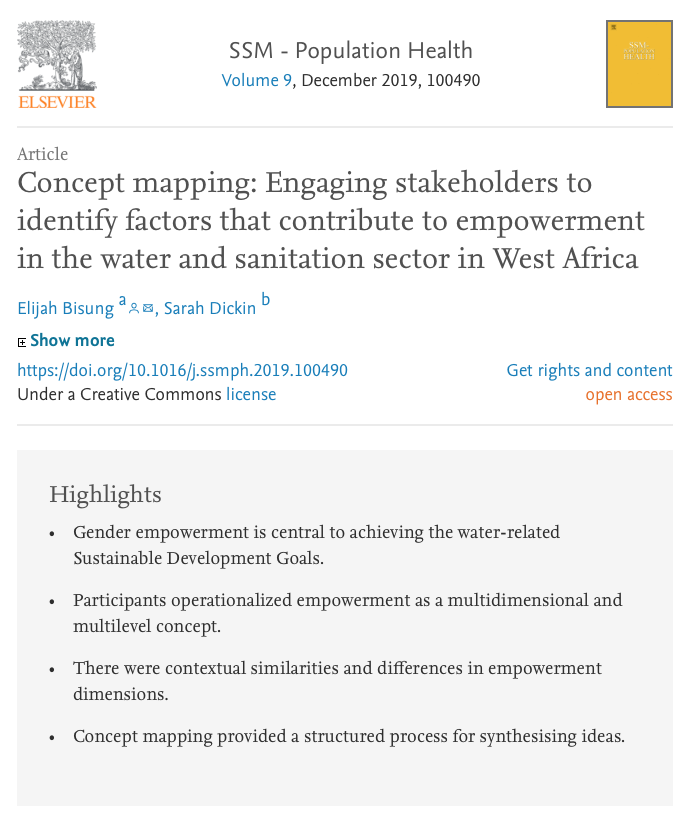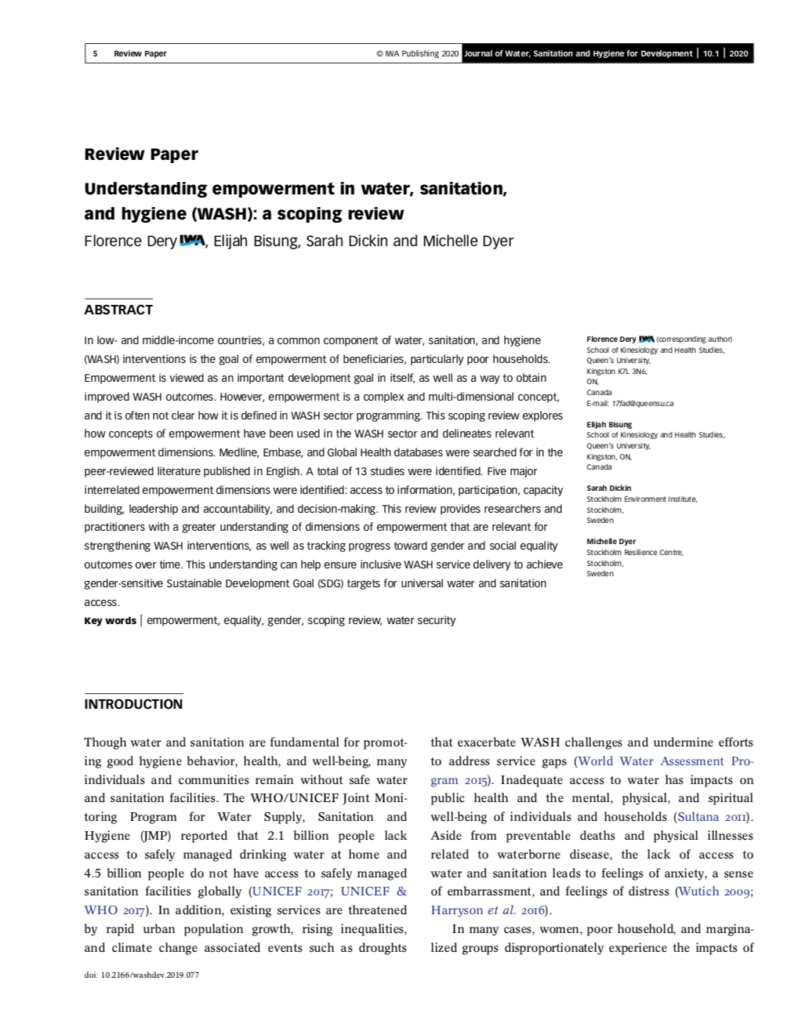
Improving water security for the poor

Redefining the connections between WASH and gender
Women and girls are disproportionately impacted by water insecurity as they are burdened with primary responsibility for water collection and management, which produces a number of health risks and limits time for other activities. Gender transformative interventions, which challenge existing gender norms and power dynamics in WASH, have greater potential to address gendered inequalities than conventional approaches, and may contribute to more sustainable WASH services. There are limited efforts to measure the gender impacts of WASH interventions, and particularly gender transformative outcomes, leading to gaps in understanding of what works or doesn’t work.
This Story of Change presents the development of the Empowerment in WASH Index (EWI), a novel survey-based tool to measure agency, voice and empowerment in a WASH context. The EWI has been used in six countries to assess and evaluate women’s empowerment, showing its potential to inform policy and practice in the WASH sector by providing more robust evidence on how to integrate gender into intervention design, monitoring and evaluation, and has been used in the REACH-WISER research.
For further details please visit the EWI resource centre at washequity.org, which includes implementation information for interested users, including the EWI survey, implementation guides, statistical codes and calculation guides.



